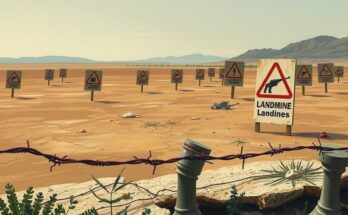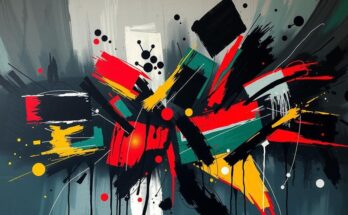Violent jihadists in Syria are becoming increasingly frustrated by the new societal dynamics, particularly in Damascus where local governance reflects a shift towards cultural freedoms. Recent actions by Syrian leaders to protect spaces for artistic expression indicate a broader societal transition that contradicts extremist ideologies, highlighting tensions that may impact the region’s stability.
The recent developments in Syria have left violent jihadists increasingly disillusioned with the changing dynamics of governance and societal norms. Specifically, the new commander in the old city of Damascus, Ahmed al-Sharaa, made headlines when he rescinded orders aimed at taking control of an Ottoman palace that housed female artists. The commander had previously expressed discontent, labeling the activities within as “improper behaviour,” and had considered it necessary to remove these women and their artistic expressions by New Year’s Eve.
The frustrations of jihadists extend beyond this localized incident; they reflect a broader challenge posed by the evolving social fabric of Syria, which increasingly embraces elements perceived as contrary to their radical ideologies. The juxtaposition of traditional jihadist priorities against vibrant cultural expressions, such as art and women’s rights, further illustrates this tension. As the population begins to assert its individuality, jihadists find their rigid interpretations of society increasingly out of step with the desires of the people for freedom and expression.
Moreover, this struggle highlights the shifting power dynamics within Syria, as the influence of extremist factions faces new resistance from both the state and societal forces aimed at fostering inclusivity. Consequently, the jihadist frustration manifests not only as a response to loss of control over spaces like the art house but also as a reaction to the broader transformation underway in Syrian society, which these factions view as an existential threat to their ideological aims.
The implications of these tensions are significant, as they contribute to a volatile atmosphere both within the jihadist ranks and among the general populace, signaling a profound clash between radical interpretations of Islam and a populace yearning for liberty and cultural expression. As such, this period marks a crucial juncture in the ongoing Syrian struggle for identity amidst chaos.
The context of this article revolves around the recent shifts in leadership and societal dynamics in Syria post-conflict. It explores the interactions between jihadist factions, local governance, and the broader populace’s desire for cultural and individual expression. The tensions arise as these extremist groups grapple with emerging societal trends that prioritize women’s rights, artistic freedoms, and a more tolerant societal framework, which contradicts their fundamentalist views. Understanding this backdrop is essential for comprehending the recent events and their significance.
In summary, the increasing frustration among violent jihadists in Syria highlights a critical clash between extreme ideological beliefs and a populace increasingly leaning towards freedom of expression, particularly in terms of art and women’s rights. The decisions made by local leaders, such as Ahmed al-Sharaa, reflect an effort to redefine societal norms in the wake of conflict, positioning them at odds with jihadist factions. This ongoing struggle underscores the complexity of Syria’s social landscape as it grapples with its identity during transformative times.
Original Source: www.economist.com




